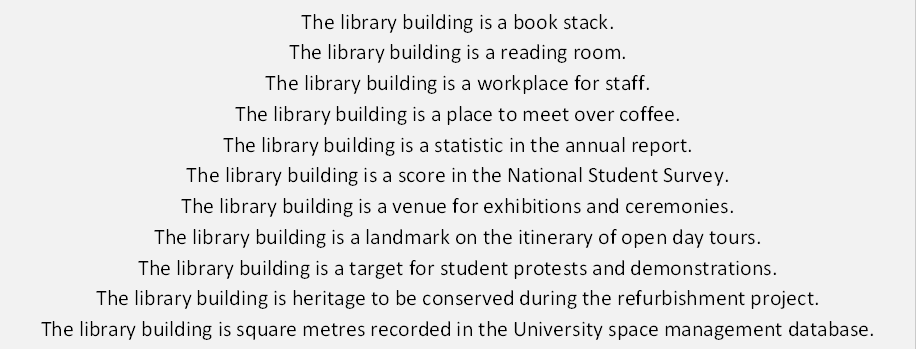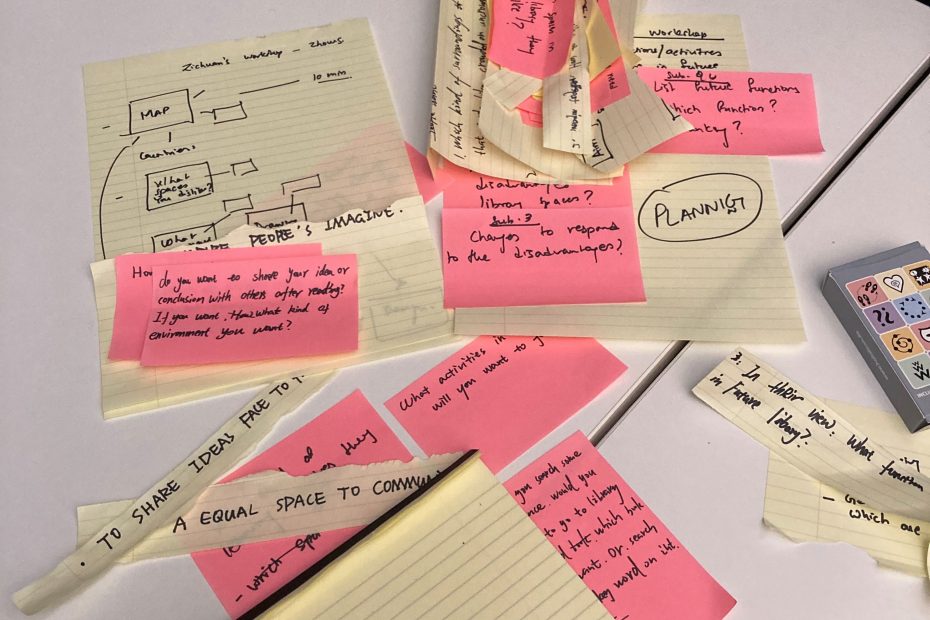Future libraries – a conceptual challenge
The intellectual landscape
Libraries have long been part of human civilisation, and an institution that has survived the test of time. However, there have been systemic changes in how we create, share and perceive knowledge. Over the last few decades, we have seen significant developments in information and technology, which have exacerbated the debates around the future of the library buildings.
Academic libraries are the heart of universities. There is a tendency in the sector to centralise library operations instead of having departmental libraries. The case for having a centralised or departmental approach to libraries depends on the institution’s spatial and historical contexts. Despite such differences in the organisational approach to academic libraries, the libraries are non-disciplinary spaces where books, objects and readers/users from different academic disciplines coalesce. Since the 1990s, the role of physical library buildings has been questioned as written materials have become increasingly accessible through an electronic medium, evoking “a paperless library”. Another tension in library design has been around the increasing development of collaborative study spaces at the expense of quiet study spaces, while the latter remains in high demand. While a range of library refurbishments have focused on the needs of undergraduate students, the role of the library in enabling and supporting research and the creation of new knowledge is also critical. Looking beyond the institution, the university library could be the gateway to the university and build university and city connections. The Hive at Worcester is an example of this. Thus, the library building has been continually subjected to the identity politics of ‘what is a library?’.

Socio-material interactions – a theoretical perspective
The theoretical lens of socio-material practices offers one avenue to explore the question of ‘what is a library?‘. By conceiving the ontology (what is something?) of a library as not situated only in bricks and mortar but in the interactions between social and material. Moreover, such an ontological shift could highlight different versions of a library that co-exist and the politics of leveraging some versions over the other. The unit will conceptually test the ideas of university architecture and libraries in particular through the lens of socio-material practices, and explore/challenge/extend the theoretical boundaries of socio-materiality through investigating experience and narrative.
Nature of the design propositions
The LE-DR Lab aims to investigate the spatial, digital and organisational strategies to address the challenges presented above. The spatial challenges relate to the design of the form and function at different physical scales ranging from “chair to the city”. The digital challenges relate to how technological interactions could be enhanced and altered through the design proposition. This strand could also explore how the physical and virtual environments interact and complement each other. The organisational challenges relate to how the library services could be designed to achieve its strategic aims alongside the architectural design. This could be explored by taking a service design approach to integrating architectural design with how users could better access library facilities and services. All three dimensions will be jointly addressed when devising architectural propositions.
Future of the library – a contextual challenge
Nature of the design propositions
The LE-DR Lab II will analyse existing library provisions on Cardiff University’s Cathays Campus and develop propositions for a future library for the campus. The design propositions will be formed by adopting a design-research approach and connecting with existing literature and precedents. The design propositions will focus on one of the following typologies while also considering interconnections between them to create hybrid typologies:
| Typology | Themes |
| Knowledge spaces | Library as a place for social learning |
| Library as a place for knowledge creation – the role of libraries in enabling research-related activities | |
| Collection spaces | The library of objects –learning through objects beyond books |
| Digital scholarship hub – emerging technologies for knowledge creation and dissemination | |
| Community spaces | University library as a cultural institution – archives and special collections as well as other services that serve the university community and the broader publics |
| Library as an enabler of the university’s civic mission |
